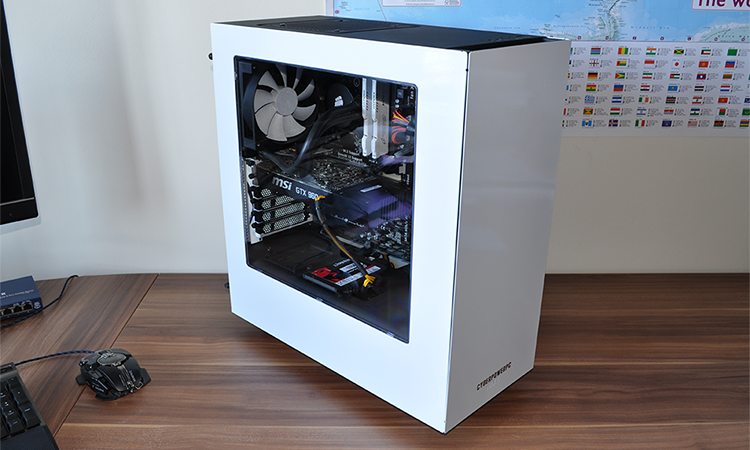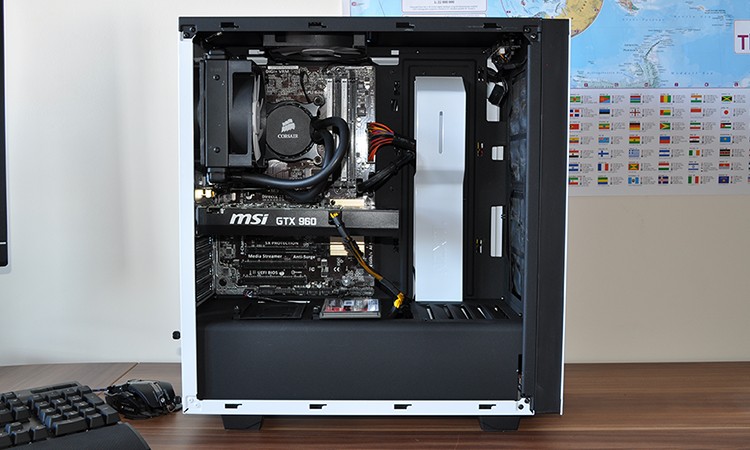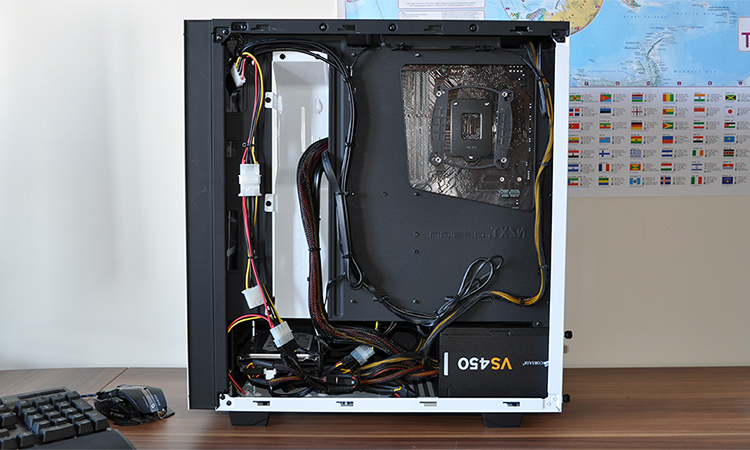Introduction
Cyberpower has refreshed its range of gaming PCs to include new models that take advantage of Nvidia's most recent arrival, the GeForce GTX 960. Regular readers will know that while the mid-range GPU doesn't set hearts aflutter, it's a solid choice for 1080p gaming, and in our estimation is ideally suited to an affordable rig that's small and practically silent.
Taking a look at how system integrators envisage GTX 960's credentials, the base unit under the microscope today is the Infinity Hercules Pro.
First impressions are good. Cyberpower's packaging effectively ensures problem-free delivery - the system's internal cavern comes padded with air cushions - and there's a tidiness about the overall build. NZXT's Source 340 is the default chassis, and though the glossy white exterior and matte-black centre are highly prone to fingerprints and scuffs, our sample looks pristine and the contrasting two-tone aesthetic is easy on the eye.
The challenge here, we feel, is in picking the right components to go with the GTX 960. In many ways, high-end systems are easy - throw in extreme components with little regard for cost and you're usually on the right track - but on a mid-range 1080p gaming machine a little more care and consideration is required.
So what has Cyberpower opted for? As part of the default specification, there's an Intel Core i5-4690K processor overclocked to 4.3GHz, a Corsair Hydro Series H55 liquid cooler, 8GB (2x4GB) of Kingston Hyper-X DDR3-1866 memory, and a stock-clocked, reference-cooled MSI GeForce GTX 960. All this sits atop an Asus Z97-P motherboard, power is supplied by a Corsair VS450 PSU and storage comes courtesy of a meagre 120GB Kingston SSDNow V300 SSD allied to a 1TB Seagate hard disk.
Cyberpower's build quality is decent, but the component selection results in a system price tag of £800, which is roughly what it would cost a consumer to purchase all the separate parts and a 64-bit version of Windows 8.1. You do of course get a guaranteed overclock and a three-year warranty as standard, however £800 is a substantial amount for a GTX 960 gaming rig, and we wonder if the default specification could have been better balanced.
The small SSD and mid-range graphics card are in our estimation at odds with the overclocked Core i5 chip. Fortunately, there are a wealth of configuration options available, and we'd be inclined to downgrade the CPU in favour of a larger SSD. Selecting a Pentium G3258 Anniversary Edition, an air cooler, and an H81 motherboard would shave almost £100 off the fee, though it should be more - the retail difference between the Core i5-4690K and G3258 is £140 on its own.
There's sadly no option for a custom-cooled and factory-overclocked GTX 960, however if it's more performance you're after, the easy option would be to upgrade to a Radeon R9 290 (+£60) or a GeForce GTX 970 (£+83). Either would significantly enhance the system's long-term gaming credentials, and experienced users will consider such GPUs a minimum at this price point.
We're of the opinion that systems armed with a single GeForce GTX 960 should be targeting the sub-£650 market. The question we need to answer, then, is whether or not the Infinity Hercules Pro does enough to warrant the higher premium. Let's take a look at performance.












